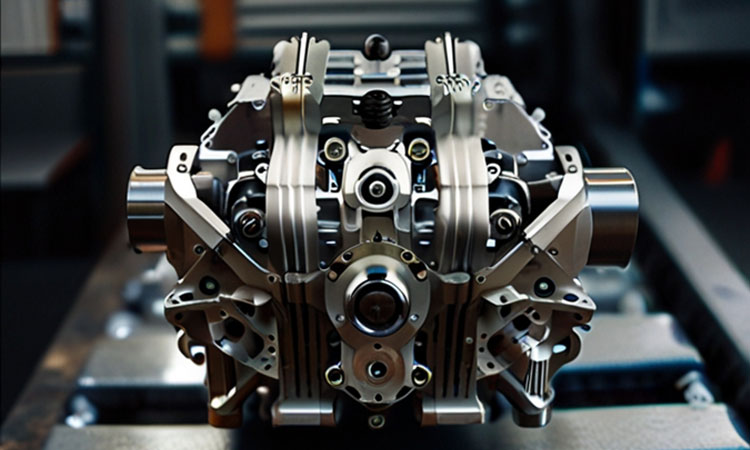Engine parts machining plays a pivotal role in the automotive industry, encompassing the manufacturing processes for critical components like cylinders, pistons, and crankshafts. As engines evolve to meet increasingly stringent performance and efficiency standards, the machining sector is witnessing several trends that are reshaping the landscape of engine part production.
Advanced Materials Utilization:
The demand for lighter, stronger, and more durable engine components has led to the adoption of advanced materials such as aluminum alloys, high-strength steels, and composite materials. These materials offer improved performance characteristics, including enhanced strength-to-weight ratios and better resistance to heat and wear. Engine parts machining processes are evolving to accommodate these materials, with specialized tooling and machining techniques tailored to their unique properties.
Precision Machining for Tighter Tolerances:
As engine designs become increasingly sophisticated, the need for precision machining to achieve tighter tolerances is paramount. Engine parts must be manufactured with exceptional accuracy to ensure proper fit, alignment, and functionality. Advanced machining technologies such as Computer Numerical Control (CNC) machining, multi-axis machining, and abrasive machining are enabling manufacturers to achieve the precise dimensions required for optimal engine performance.
Integration of Smart Manufacturing Technologies:
The integration of smart manufacturing technologies, including Artificial Intelligence (AI), Internet of Things (IoT), and machine learning, is revolutionizing engine parts machining processes. These technologies enable real-time monitoring, predictive maintenance, and process optimization, leading to improved efficiency, reduced downtime, and enhanced quality control. AI-driven algorithms can analyze vast amounts of machining data to identify trends, optimize cutting parameters, and prevent tool wear, resulting in higher productivity and lower production costs.
Embracing Sustainability:
The automotive industry’s increasing focus on sustainability is driving changes in engine parts machining practices. Manufacturers are adopting eco-friendly machining techniques, such as dry machining and minimum quantity lubrication, to minimize environmental impact and reduce waste generation. Additionally, the use of recyclable materials and energy-efficient machining processes is becoming more prevalent, aligning with global sustainability initiatives and regulatory requirements.
Shift towards Electric Powertrains:
The growing adoption of electric powertrains in vehicles is reshaping the demand for engine parts machining. While traditional engine components such as cylinders and crankshafts will still be needed for internal combustion engines, machining companies are diversifying their capabilities to produce components for electric drivetrains and battery systems. This includes machining battery housings, motor components, and cooling systems tailored to the requirements of electric vehicles.
Engine parts machining is undergoing a period of rapid evolution driven by advancements in materials, precision machining techniques, smart manufacturing technologies, sustainability initiatives, and the shift towards electric powertrains. Manufacturers that embrace these trends and invest in cutting-edge machining processes will be well-positioned to meet the demands of the automotive industry for high-performance engine components that drive innovation and efficiency.



